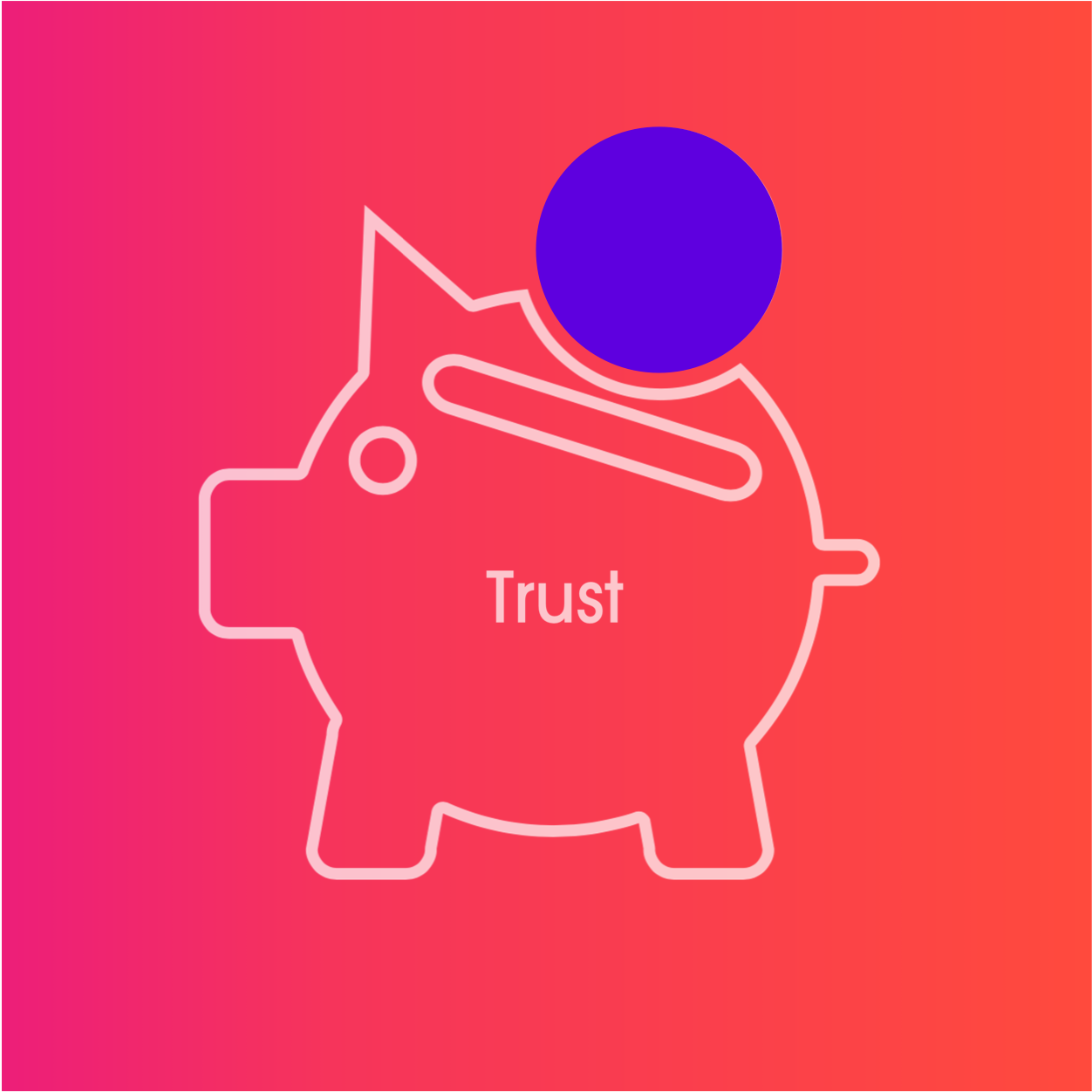Should you only trust people who have earned it?
Leadership Blog | 4 minute read

Written by Mike Straw

In our last article we explored why getting present is an important step towards collaboration. Today we explore how trust plays into that process and how trusting up front can make all the difference.
Trust is a valuable currency in leadership and collaboration. But we can sometimes be reluctant to spend it.
Waiting for others to prove their trustworthiness to you is sensible on one level. At least, before you strike up a relationship. You don’t usually want to partner with businesses whose reputation doesn’t precede them, in the same way that you don’t want to marry someone you barely know.
But once some kind of collaboration is on the agenda, the rules change a little.
Your trust is a choice
When you’re about to collaborate with others and you’re seeking to create something groundbreaking together, you need to grant your trust at the outset.
Hang on, just like that? Haven’t you got to wait to see how people perform first? Don’t you need to see enough to gauge how this is going to go? If it’s not going to work out, shouldn’t we hold our trust back a little so we can pull out with minimal damage once the warning signs show?
This is the logic of earned trust. Earned trust requires someone’s past record to speak in their defence before you commit, speak honestly or give others access to your thought process. This has its place but it also has its limits.
Granted trust on the other hand, inspires you to throw yourself fully at a project, into a collaboration and speak honestly in a dialogue long before the other party has proven worthy. It is less concerned with self-preservation and more in tune with the possibilities created by launching into collaboration wholeheartedly.
The trouble is, you’ll always be able to find a reason not to trust, even in the most idyllic of partnerships. And your reticence can do far more damage than good. It can even set the relationship up to fail.
When you rely on earned trust, the pool of people you can collaborate with gradually gets smaller and smaller. Sooner or later, you’re going to have to stop tallying up reasons for and against, and make a choice.
You can reap the rewards early
Those you partner with might not be so quick to trust you. But you shouldn’t let that hold you back from trusting them. Trust doesn’t need to be reciprocated for you to start benefiting from it.
Your trust enables others to meet you as an equal and empowers them to be their best selves. When they feel free to think and act without backlash, they’ll bring their best ideas to the table. Not only will they find it easier to imagine possibilities, they’re more likely to tell you straight when they spot something amiss.
Of course, we’re not saying that you should opt for naive trust. Granted trust is not about turning a blind eye to people’s shadow sides. And it doesn’t mean your trust can’t be broken. It means that even when that happens, there can still be a shared commitment in place. And when we decide to grant trust and maintain an open dialogue after trust is broken, it enables us to deal with the situation far better than if we had retreated into reticence.
Together you’ll be able to take action faster in response to both opportunities and problems. You’ll be able to align quickly and start seeing the results - results that, paradoxically, you would have been unlikely to see if you’d waited around for them. Waiting to see before you trust simply slows everything down - and might mean the best doesn’t happen at all.
Your trust makes you aware
Being present is essential to collaboration. But waiting to trust can desensitise you to what you should be present to, including yourself.
Waiting for trust to be earned can stop you from being present to what matters. When your eyes are on the other party, weighing up whether it’s worth voicing your true thoughts, your eyes are not on the bigger picture.
What’s more, you actually stop being present to the people who you wish to prove themselves. You’re tuning into how they’re acting and performing but you are tuning out how they are feeling and thinking.
And relying on earned trust can stop you from being present to yourself. Without allowing those different to you to challenge your thinking, you can become stuck inside your own frames of reference, unaware that the little voice inside your head doesn’t have the whole picture.
When we don’t grant trust, we play it safe and stick to what we know. To who we have always been. Our attempts to deliver predictable results might inspire those around us to regard us as responsible - but we can’t deliver breakthrough like this. When you give your trust however, new horizons open up.
You’ll never be able to afford to trust… so do it anyway
Granted trust breeds granted trust. When you’re open and honest, it invites others to be as well. And when everyone is talking straight, it’s easier to contribute fully, without holding back. Everyone is free to commit to something greater. Possibility is in the air.
The urge to hold back trust can just be a lack of commitment to breakthrough. Our restraint is guided by an underlying belief that nothing groundbreaking could happen anyway, so it’s better to play it safe. But when we throw off those shackles…
That old advice, ‘feel the fear and do it anyway’, doesn’t apply any less to trust. Once we acknowledge the little voice that says, ‘What if it doesn’t work out?’ we are free to respond. We still have a choice. Because it might not work out - but what if it is transformational? What if it is extraordinary? What if it hatches the breakthrough you were looking for?
Your trust can clear the runway for Breakthrough Collaboration. Check out our partnership and collaboration services or get in touch to explore how we can help you ignite your ambitions.
Published 03/12/2020
Subscribe by Email
Achieve more breakthroughs. Get expert leadership ideas, insights and advice straight to your inbox every Saturday, as well as the occasional bit of news on us, such as offers and invitations to participate in things like events, webinars and surveys. Read. Lead. Breakthrough.
